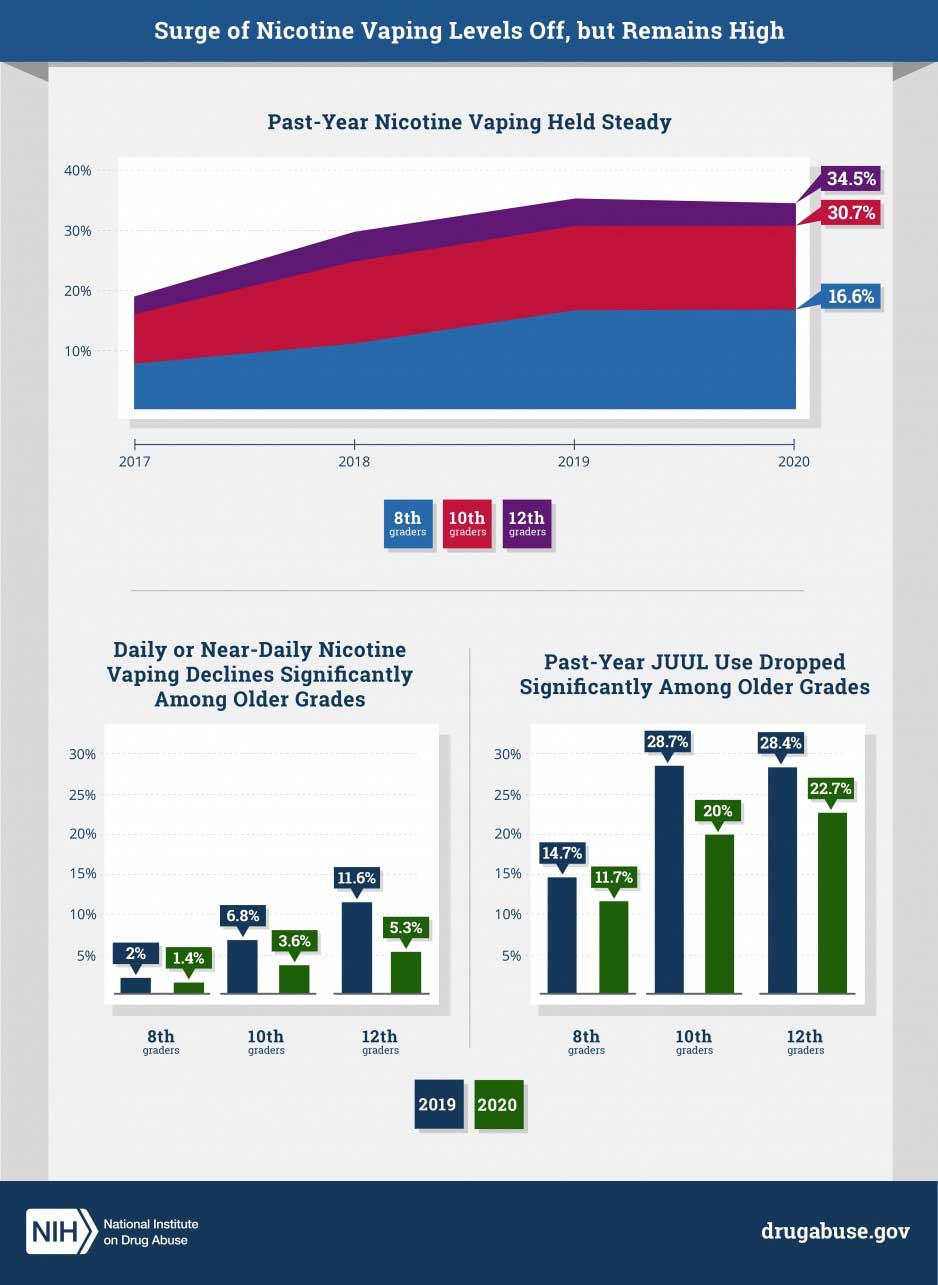Survey Shows Youth Vaping has Reached Potential Plateau
- News This Week Research
- December 16, 2020
- 3 minutes read

Credit: Sabrina-Rohwer

The increase in U.S. teenage vaping seen from 2017 to 2019 has halted in 2020, according to new research published by the JAMA Network. The study also found that there was a significant decline in the use of Juul products, countered by increases in the use of other vapor brands.
In 2020, Monitoring the Future surveyed 8,660 students in 10th and 12th grade. Nicotine vaping prevalence in 2020 was 22 percent for past 30-day use, 32 percent for past 12-month use and 41 percent for lifetime use; these levels did not significantly change from 2019. Daily nicotine vaping significantly declined from 9 percent to 7 percent over 2019 to 2020.
The authors of the study speculate that the rise of youth vaping has slowed because of “noteworthy events” during late 2019 and early 2020. The e-cigarette and vaping–associated lung injury epidemic that received considerable media attention in the second half of 2019 may have deterred use by increasing adolescent perceptions of harm from vaping.
What’s more, on Feb.7, 2020, the U.S. Food and Drug Administration (FDA) began enforcement against the sale of e-cigarette cartridges with flavors other than tobacco or menthol. This FDA action came after the decision by market leader Juul Labs to voluntarily stop selling most of their its cartridges preferred by youth.
In addition, the federal minimum age for legal e-cigarette purchase changed from 18 to 21 years on December 20, 2019, thereby potentially reducing youth access to vaping products.
“We are encouraged that according to the paper in JAMA Pediatrics underage use of Juul products, ‘dropped dramatically,’ which shows the importance of evidence-based interventions,” Juul said in a press release.
“We will continue to combat underage use of vapor products, which is unacceptable, by working with states toward full implementation and enforcement of Tobacco 21 and supporting [the] FDA’s [U.S. Food and Drug Administration] active enforcement against illicit and illegally marketed products, such as disposables, that jeopardize the category and its harm reduction potential for adult smokers.”
